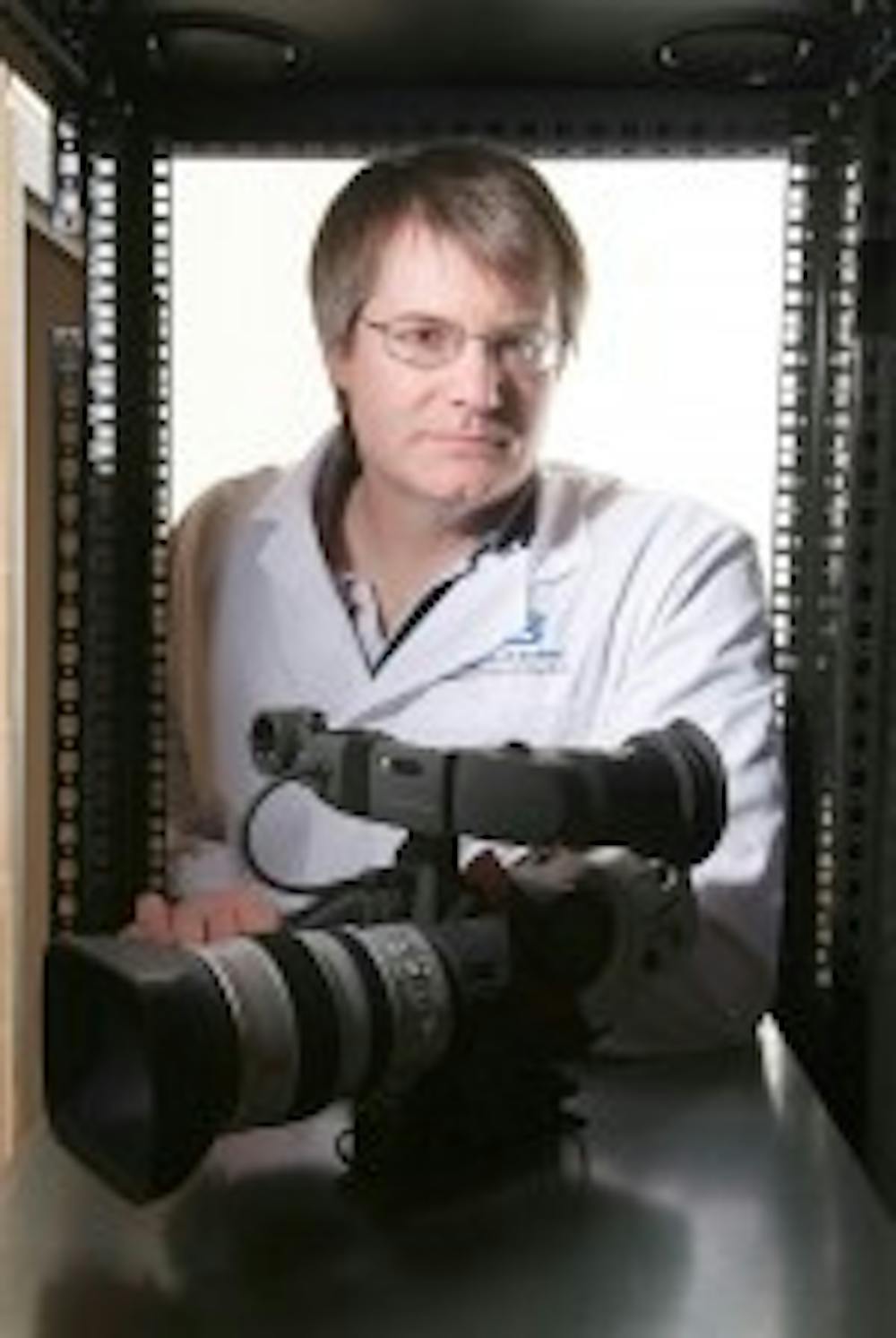Don't try telling this professor that the dog ate your homework.
Dr. Mark Frank, a professor in the communication department, has been analyzing lies and nonverbal communication for most of his life. His research in studying unconscious and conscious cues in deception have taken him from being a bouncer to appearing on Oprah.
Frank is now in his fifth year instructing at UB.
"It started when I was a bouncer when I was an undergraduate here at UB back in the early '80s," Frank said. "I thought I got good at reading people. You know, kind of observing them. Who might be underage, who might be trouble."
Frank carried this interest into his graduate studies at Cornell. He decided to do his dissertation on how effective humans are at reading other people, specifically when it comes to expressing something that they don't necessarily feel.
Frank discovered that there are certain groups who routinely do well on various lie-detecting tests. Frank finds that the secret service does very well on these kinds of tests, largely because they have developed skills in detecting nonverbal communication.
"They're very attuned to body language, because they have to be. [When] you're protecting the president or a dignitary, you've got to look for potential threats," Frank said. "When it's a crowd, you can't hear anything, so you have to be completely nonverbal then."
Interestingly, children who have been physically abused or raised in institutions and people with left hemisphere brain damage (which renders humans unable to process speech) appear to be better than the average person at detecting lies. These people learn that nonverbal communication is more significant, and, as a result, become highly attuned to detecting things like deception, according to Frank.
Frank doesn't believe that deception is necessarily a bad thing.
In some cases, it would be unethical to tell the truth. Frank cited the classic philosophic dilemma of St. Thomas Aquinas, where a murderer comes to a person's house asking if a brother is home. In this case, it would be accepted to lie because it would mean that a life is being saved.
"Say you have a 10 year old at home, alone, and mom has run to the corner store just for a moment, and some stranger comes to the door. Sometimes it may be prudent to say ‘Mom's busy right now' instead of ‘I'm 10 years old, I'm here alone by myself,'" Frank said.
In Frank's opinion, it doesn't make much sense to have a list of cues set in stone when it comes to lie detection. For example, many people wrongly attribute a person's inability to stare someone in the eye with lying, according to Frank. In some cases, this may mean that they're lying, but in other cases, it may just be a sign of nervousness.
Although there isn't a concrete list, Frank is still able to train people to detect minute details of how people act while they are telling a lie. A certain facial movement may be harder to perform while telling the truth, or a certain smile may be indicated as a lack of honesty.
"At least half of what the average person knows about detecting lies is wrong," Frank said. "There is no human equivalent of the Pinocchio response. In Pinocchio's case, his nose only grew when he told a lie. His nose did not grow when he was nervous about giving a big oral presentation to advisors."
Lie-detection techniques, many of which Frank has studied extensively, can be effective for secret service or police officers because it frequently has a place in keeping people safe in precarious situations.
"[My research] has enabled me to interact with really important people who do very, very difficult jobs, whether it's cops or it's people in the counter-terrorism world in the military," Frank said.
Frank enjoys the opportunities he has to train these people, as well as learn from them. He feels refreshed by witnessing people who are doing these high-stake jobs with such intelligence, enthusiasm, and care.
"I think that sometimes when you read the media accounts you don't see this," Frank said. "That has been an eye-opener, and an eye opener in the literal sense. Sometimes it keeps you up at night realizing the stuff that some of these folks are trying to wrestle with – the fears, the concerns, and the things that they're trying to prevent to keep us all safe. I have nothing but admiration for these high stakes jobs."
E-mail: features@ubspectrum.com





